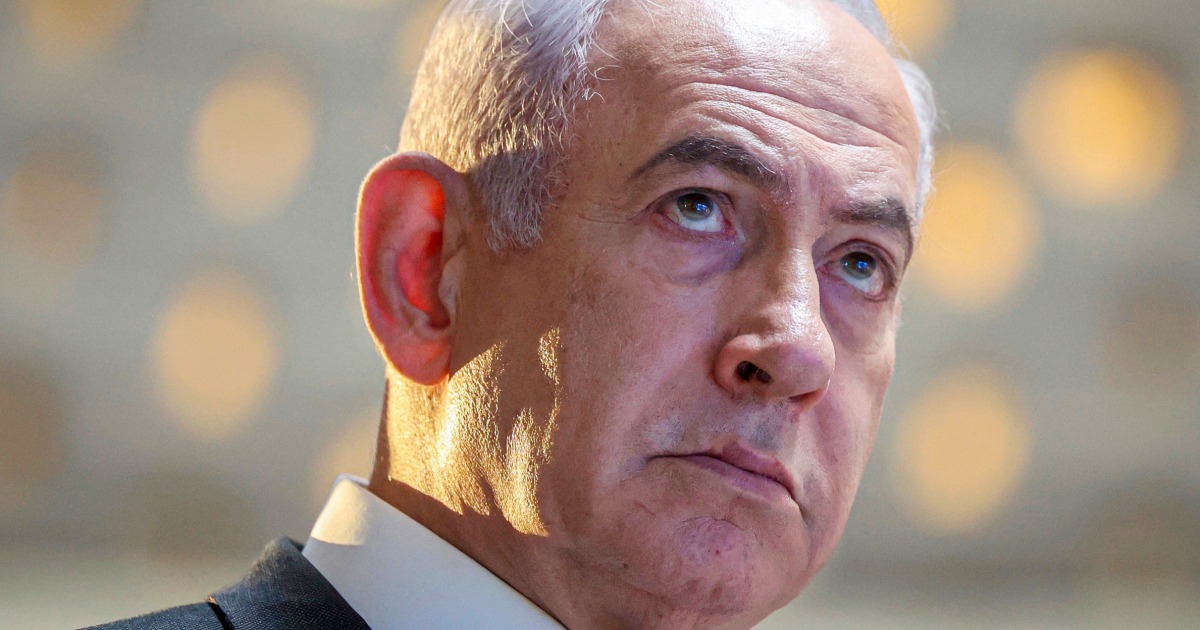Netanyahu’s Political Survival and the Hostage Crisis: A Complex Web of Strategy and Skepticism
Outside of his Cabinet and political base, Israeli Prime Minister Benjamin Netanyahu faces a persistent charge: that he has prioritized his own political survival over the broader interests of the nation. Critics argue that in his quest to appease his right-wing base, Netanyahu has engaged in military actions that lack a coherent strategy, leading to significant consequences for Israel’s security and diplomatic standing.
The Accusations of Political Maneuvering
Former Prime Minister Benny Gantz, who was once a key ally in Netanyahu’s Cabinet, stepped down in June, expressing frustration over what he described as Netanyahu’s obstruction of “real victory” in the ongoing conflict with Hamas. Gantz’s departure underscores a growing discontent among former allies who believe that simply targeting Hamas leaders will not lead to a sustainable resolution of the conflict. This sentiment reflects a broader skepticism about Netanyahu’s approach, which many perceive as more focused on maintaining his political power than on achieving lasting peace.
The Aftermath of Sinwar’s Killing
The recent killing of Hamas leader Yehya Sinwar has intensified calls for Netanyahu to negotiate a deal for the return of hostages taken during the conflict. Israeli President Isaac Herzog emphasized the urgency of the situation, stating on social media that “now, more than ever, we must act in every way possible to bring back the 101 hostages.” This statement resonates deeply within Israeli society, where the plight of hostages has become a rallying point for many citizens.
Public Sentiment and Skepticism
Despite the official calls for action, many ordinary Israelis express skepticism about the government’s intentions. Hagay Keren, a 52-year-old attorney from a town near Haifa, voiced his concerns to NBC News, stating, “I fear that the motives of Netanyahu’s government are never entirely pure.” Keren worries that the government may prioritize the continuation of the war over the urgent need to secure the hostages’ release, suggesting that the complexities of political survival could overshadow humanitarian concerns.
This skepticism is echoed by families of the hostages, who feel increasingly frustrated by the government’s actions. Jonathan Dekel-Chen, whose son Sagui was taken hostage on October 7, articulated a common sentiment among these families: “There is no victory whatsoever in this war against Hamas without the return of the hostages.” Dekel-Chen’s plea highlights the emotional toll of the conflict and the urgent need for a resolution that prioritizes the hostages’ safe return.
The Political Landscape Ahead
As Netanyahu navigates this complex landscape, he is also acutely aware of the shifting dynamics of international support, particularly from the United States. With American voters set to choose their next president in the coming weeks, Netanyahu’s strategy may hinge on the outcome of that election. Analysts like Bronwen Maddox from Chatham House suggest that Netanyahu is likely waiting to gauge the political climate in the U.S. before making significant moves. “My guess is, like a lot of the world, he’s waiting to see what comes out of it,” Maddox noted, indicating that Netanyahu may not feel substantial pressure until the election results are in.
In this intricate web of political maneuvering, military strategy, and humanitarian concerns, Netanyahu’s next steps will be closely scrutinized both domestically and internationally. The stakes are high, not just for the hostages and their families, but for the future of Israeli politics and the broader Middle Eastern landscape.
